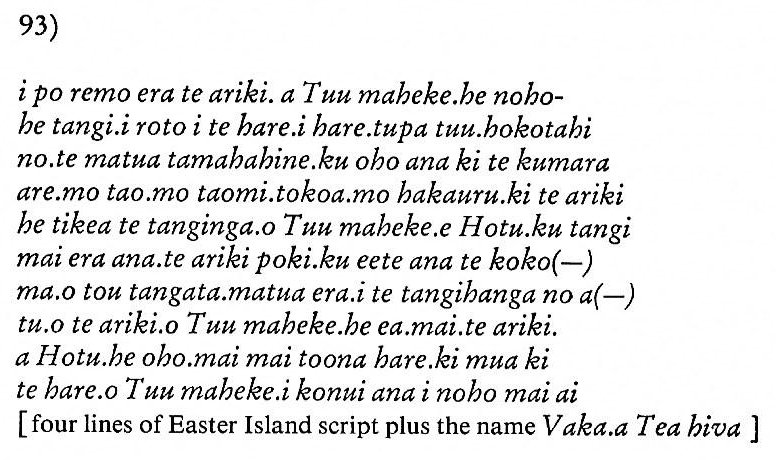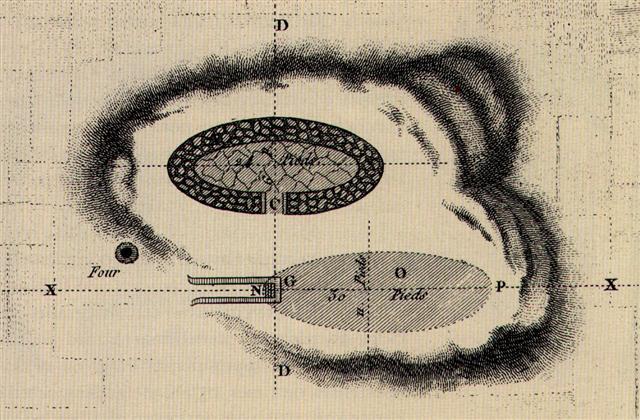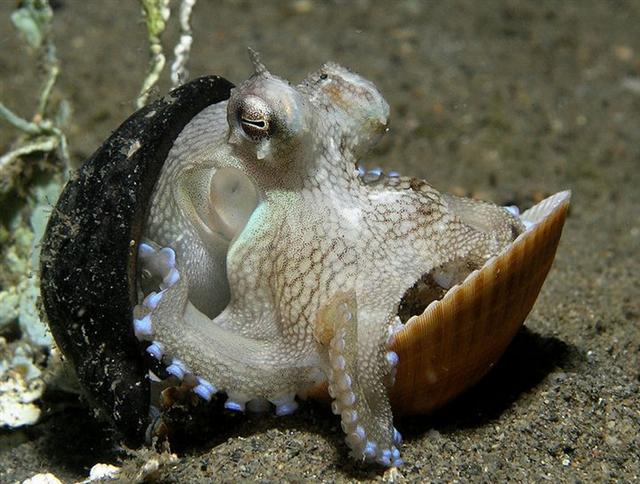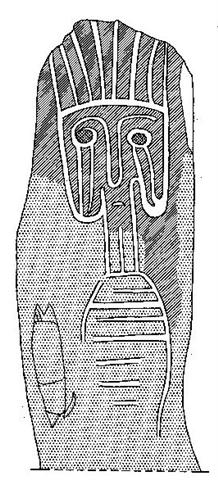
| te
ingoa o te maara noho o te ariki.o Hotu.ko oro(-) |
The name of the
residence (maara noho) of the king, of Hotu,
was Oromanga. The name of the place where the roof
of the house had been covered [hidden, kona]
by Nuku Kehu was Hare Topa (sic!) Tuu. |
|
manga.te ingoa o te kona
era i hatuu era i te hare. |
| e
Nuku kehu.ko hare topa tuu. |
| The expressions Tonga,
Kona, Toa (Sam., Haw., Tah.), to
indicate the quarter of an island or of the wind,
between the south and west, and Tokelau,
Toerau, Koolau (Sam., Haw., Tah.), to
indicate the opposite directions from north to east
- expressions universal throughout Polynesia, and
but little modified by subsequent local
circumstances - point strongly to a former habitat
in lands where the regular monsoons prevailed.
Etymologically 'Tonga', 'Kona',
contracted from 'To-anga' or 'Ko-ana',
signifies 'the setting', seil. of the sun. 'Toke-lau',
of which the other forms are merely dialectical
variations, signifies 'the cold, chilly sea'.
Fornander. |
|
Four lines of
Easter Island script plus the name Vaka.a Tea
hiva:
= segments from
Br10 and Br9 and two doubtful lines (The Eighth
Land, p. 290.) |
| he
maro tokoa te mee.a Nuku Kehu.i tuki.mai |
Nuku Kehu was also in
charge of the feather garlands (maro), which
served to mark the boundaries of the royal
residence. He had pounded (the staffs with the
feather garlands) into the ground [he
maro tokoa te mee.a Nuku Kehu.i tuki.mai].
The middle (te tini) was located in front
of the bay of Hanga Rau [te
tini o mua i te hanga.o hanga rau]. The
feather garlands went up, continued, and reached
Puku Parari [i iri
ai te maro.i oho.ai.he tuu ki puku parari].
They went up again and reached Puku O Heha [he
iri hokoou he tuu.ki puku o heha].
From Puku O Heha they formed (a line) to the
side, to Aro Huri [i
hakataha hokoou ai ka aro huri]. From Aro
Huri they turned again toward the sea [i
hoki hokoou ai.a tai] and reached Maunga
Koua [he tuu ki
maunga koua], went down, went their way,
and reached Hira Moko [he
turu he oho.he tuu ki hira moko]. (He)
made a second line (?
he rua taupa)
of feather garlands. |
| te
tini o mua i te hanga.o hanga rau.i iri ai te maro. |
| i
oho.ai.he tuu ki puku parari.he iri hokoou he tuu. |
| ki
puku o heha.mai puku o heha.i hakataha hokoou |
| ai
ka aro huri mai aro huri i hoki hokoou ai.a tai |
| he
tuu ki maunga koua he turu he oho.he tuu ki hira |
|
moko.he rua taupa o te maro. |
|
Pa.1. Mgv.:
pa, an inclosure, a fenced place. Ta.: pa,
inclosure, fortification. Mq.: pa, inclosure.
Sa.: pa, a wall. Ma.: pa, a fort. 2.
Mgv.: pa, to touch. Sa.: pa'i, id.
Ma.: pa, id. 3. Mgv.: pa, to prattle.
Ta.: hakapapa, to recount. 4. Mq.: pa,
a hook in bonito fishing. Sa.: pa, a
pearlshell fishhook. Ma.: pa, a fishhook.
Pau.: hakapa, to feel, to touch. Mgv.:
akapa, to feel, to touch, to handle cautiously.
... Long ago in the very
beginning of time there dwelt within a shell an
infant god whose name was Ta'aroa. He was
Ta'aroa the unique one, the ancestor of all
gods, the creator of the universe whose natures were
myriad, whose backbone was the ridgepole of the
world, whose ribs were its supporters. The shell was
called Rumia, Upset.
Becoming aware at last of his own
existence and oppressed by a yearning loneliness
Ta'aroa broke open his shell and, looking out,
beheld the black limitless expanse of empty space.
Hopefully, he shouted, but no voice answered him. He
was alone in the vast cosmos. Within the broken
Rumia he grew a new shell to shut out the
primeval void ... |
|
E:92 |
| he
noho a Hotu.i hare tupa
tuu.he hangai i a Tuu
maheke. |
Hotu stayed [he
noho] in Hare Tupa Tuu. |
|

Tupa. Ancient buildings found scattered
along the coast; made of stone, and almost all of
them round, they served as shelters for fishermen.
Tupatupa, to carry (someone) on a stretcher;
to carry (a load) with the help of several people.
Vanaga.1. Land crab. PS Mgv.: tutupa, a large
crayfish. Mq., Ta.: tupa, land crab. Sa.,
To., Fu.: tupa, a land crab with large claws.
2. Mixture, to carry, tupatupa, to bring in
one dead or wounded. Tupapaku, corpse. T
Pau.: tupapaku, corpse, ghost. Mgv.:
tupapaku, corpse, sick person. Mq.: tupapaku,
tupapaú, id. Ta.: tupapau, corpse,
ghost, specter. Churchill. KUPA, v.
Haw., to dig out, hollow out, as a canoe or a
trench; kupa-paku, a place deep down in the
ground. Tah., tupa, to dig out, hollow out,
scoop out. Fiji., cuva, to stoop, bow
down.Mal., kubur, grave, tomb. Sunda.,
tumbuk, a hook, a staple. Sanskr., kûpa,
a well, a pit.; kûpa-kara, a well-digger;
kub-ja, humpbacked, crooked; kumbha, a
pot, jar. Benfey (Sanskr. Dict.) refers the two
latter to a lost verb kubh, with an original
signification of 'to be crooked'. He offers no
etymon, however, for kûpa, well, pit. The
Polynesians reconcile the two. The Sanskrit kûpa
finds its kindred in the Hawaiian and Tahitian
kupa, and the Sanskrit kumbha, ku-ja,
and kubh, with a primary sense of 'crooked',
refer themselves to the Fijian cuva, 'to
stoop, low down', a sense now lost within the
Polynesian dialects proper. Pers., kuftan,
kaftan, to dig, cleave; kuft, kâf,
fissure. Armen., kup, pit, cistern. Greek,
κυπτω, to bend
forward, to stoop down; κυφος,
humpbacked; κυμβη,
a cup, a boat, a wallet; σκυφος,
a cup; κυψελη,
any hollow vessel. Lat., cubo, lie,
recline: concumbo, incumbo; cupa,
a vat, cask. Goth., kumbjan, lie down,
recline; hups, the hips, loins. A.-Sax.,
cop, a hollow vessel, cup. Anc. Slav., kâpona,
a goblet. Russ., kopati, to dig; a cistern.
Welsh, cwb or cwpan, a hollow place,
kennel or cote. Gael., tubag, tub. Fornander.
Compare also the type of structure, mainly in the
Lake Titicaca basin area, called chullpa and
Easter Island's tupa, both apparently built
as 'adoratorios', in which mummies,
skeletons, and skulls were displayed and worshipped
… where tupa would be the expected Polynesian
revaluation of chullpa. Schumacher. |
| Hâgai. To feed.
Poki hâgai, adopted child. Vanaga. To feed,
to nourish, foster-parent (agai); hagai ei
u, to suckle. P Pau.: fagai, to feed, to
maintain, to support. Mgv.: agai, to nurse,
to nurture, to give food to, an adoptive or foster
father; akaagai, to feed. Mq.: hakai,
to feed. Ta.: faaai, to nourish, a
foster-parent. Churchill. |
| te
tuura.o Tuu maheke.ko
Rovi.tumuteka
(sic!).te tao. |
The servant (tuura)
of Tuu Maheke, namely Rovi [te
tuura.o Tuu maheke.ko Rovi], prepared the
food for Tuu Maheke [he
hangai i a Tuu maheke]. Tuu Maheke stayed
in Hare Tupa Tuu because of this servant, Rovi.
The earth-oven, the lighting of fire (tumuteka;
emulation te umu te ka), and the
cooking (te tao) were the responsibilities of
Rovi.When it was time to place (the food) into the
earth-oven, to take out (the prepared food), and to
take (the meal into the house) to the king, to Tuu
Maheke, only Rovi was allowed to be there. He alone
could supply the king, Tuu Maheke, with food. |
| a
Rovi ana te apa.mai i
te umu.te mau mai.te hakauru. |
| ki
te ariki.kia Tuu maheke.ai ka noho.no a Rovi.ka
hangai |
| no.i
te ariki i a Tuu maheke.ku ravaa ro a i. te tau.o te |
| Ura, lobster.
Ûra, flame, blaze (ûra ahi), to become
furious (with manava as subject: ku-ûra-á
te manava). Úraúra, bright red. Vanaga.
1. Crayfish, lobster, prawn. P Mgv.: ura,
crayfish. Mq.: uá, lobster. Ta.: oura,
crayfish, lobster. 2. Fire, burning, to be in
flames; uraga, combustion, flame, torch;
hakaura, to cause to glow, to kindle, to light.
P Mgv., Ta.: ura, a flame, to burn. Mq: uá,
id. Uraga, burden, load, weight. Uraura,
vermilion, scarlet. P Pau.: kurakura, red.
Mgv.: uraura, an inflamed countenance. Mq.:
uáuá, red, ruddy. Ta.: uraura, red.
Churchill.
Tumu.
1. Tree trunk. 2. Ancestors: tumu matu'á,
parents; tumu tupuna, grandparents. By
extension: tumu taína, members of friendly
families. 3. Como término muy especial se usa
tumu para se¤alar a familias o personas que no
son parientes, de modo que sus hijos podían, según
antigua usanza, casarse entre ellos y formar un
nuevo tronco. 4. Origin of something; initiator of
an idea; person who is the cause of a fight: tumu
taûa. 5. He-kore te tumu, to be so
weakened that you cannot stand (lit.: the trunk is
lacking). Vanaga. Base, cause, element, origin,
principle, source, spring, trunk, occasion, author,
subject, motive; ina e tumu, accidental,
fortuitous; tumu kore, causeless, baseless,
weak in the legs, to waver; tumu o te hakareka,
toy; tumu hatihati, weak in the legs; tumu
o te hiriga, purpose of the voyage. T Pau.:
fakatumu, to lay a foundation. Mgv., Mq., Ta.:
tumu, cause, base, origin, principle, trunk.
Tumumeika (tumu - meika),
banana plant. Mgv., Mq.: tumumeika, id.
Churchill.
Teka.
Tekai, curl, a round ball, as of twine. (Tekateka)
hakatekateka, rudder, helm. Churchill.
Routledge's informants still knew the names of the
immigrant canoes (RM:278); they were given as 'Oteka'
and 'Oua'. One Rongorongo text shows
ua as the term used for two canoes, while
RR:76 [Barthel's no. 76, GD111] (phallus grapheme
ure, used in this case for an old synonym
teka; compare TUA. teka 'penis of a
turtle', HAW. ke'a 'virile male') tends to
confirm the oral tradition with a transpositional
variant (Barthel 1962:134). Barthel 2. Pau. teka,
arrow. Ta.: tea, id. Mq.: teka, a game
with darts. Sa.: te'a, id. Ma.: teka,
id. Churchill. Mgv. teka, a support,
scaffold. Ta.: tea, the horizontal balk of a
palisade, the crossbeam of a house. Mq.: tekateka,
across, athwart. Ha.: kea, a cross.
Churchill.
65 - ono tekau ma rima illustrates how in the
Maori dialect tekau stands for 10. Harawira.
Hapai. 1. To handle delicately, carefully;
he hapai i te poki, to pick up, a baby; ka
hapai mai i te kai nei, pass me this food here
(wrapped in banana leaves). 2. To lift (one's feet
when running): he hapai te va'e. Vanaga. To
lift, to raise, to elevate, to embark, to carry, to
transport, to offer, to accept, to transmit;
hapai ki ruga, to load, to raise, to extract, to
exhaust; hapai koona ke, to transfer, to
remove; hapai rogo, to announce; hapaiaga,
elevation, to raise; hapaihaga, burden,
offering, assumption; hapaihakahoua, to
report; hapaitari, to import. P Pau: hapai,
to lift up, to raise. Mgv.: apai, apapai,
aapai, to carry, to bear. Mq.: hapai,
to lift, to raise, to take away, to displace. Ta.:
apai, to bring; hapoi, hopoi,
to transport. Churchill. |
|
ariki o Tuu maheke.etahi te
kauatu marima. |
In this manner Tuu Maheke had
reached (the age of) fifteen. |
| he
ea a Rovi.he too i te here.he
mau he oho.ki tai.here. |
Rovi took the eel trap.
He picked it up and went to the sea to catch eel,
which were supposed to be a side dish (inaki)
for King Tuu Maheke's sweet potatoes [te
kumara.o te ariki.a Tuu maheke]. |
| hai
koreha.mo i(n)aki o te
kumara.o te ariki.a Tuu maheke. |
| Here. 1. To catch
eels in a snare of sliding knots; pole used in this
manner of fishing, with a perforation for the line.
2. To tie, to fasten, to lash; rasp made of a piece
of obsidian with one rough side; cable, tie;
figuratively: pact, treatise. Vanaga. 1. To lash, to
belay, to knot the end of a cord, to lace, to tie,
to fasten, to knot; to catch in a noose, to
strangle, to garrote; here pepe, to saddle;
moa herea, a trussed fowl; hehere,
collar, necklet; herega, bond, ligament;
heregao, scarf, cravat. 2. Hakahere. To
buy, to sell, to barter, to part with, to pay for,
to do business, to compensate, to owe, to disburse,
to expiate, to indemnify, to rent out, to hire, to
traffic, to bargain, to bribe; merchant, trader,
business, revenge; tagata hakahere, merchant,
trader; hakahere ki te ika, to avenge;
hakaherega, ransom, redemption; hakahererua,
to exchange, to avenge. 3. Here ei hoiho,
incense. Churchill. Hereke, festering wound,
cracked skin. Barthel 2.
Koreha. 1. Sea eel; several sorts are
distinguished: koreha puhi. haoko, migo, tapatea.
2. Koreha o raro o te oone, earthworm;
koreha henua, snake. Vanaga. Eel, worm;
koreha heenua, worm. Churchill. |
| he
noho he here.ku hinihini ana.a Rovi.i te herehanga i
te |
He stayed there and went about
catching eels. |
|
koreha. ku po.remo ana te ariki.a Tuu maheke.i te
noho.hanga |
But Rovi stayed late
catching eels, and Tuu Maheke became hungry while he
waited all by himself. Night came, and King Tuu
Maheke remained without food. |
|
no.ko te po ana.kai kai te ariki.a Tuu maheke. |
|
 |
|
E:93
(→ 363 - 270) |
| i
po
remo era te ariki. a Tuu maheke.he noho- |
When King Tu Maheke grew
hungry, he sat down inside the house and cried [he
noho-he tangi.i roto i te hare.tupa tuu]. He was all alone [hokotahi] in Hare Tupa Tuu because
[no] the
mother (too) had gone away to dig up sweet potatoes
[te matua
tamatahine.ku oho ana ki te
kumara are], and cook them in the
earth-oven [mo tao], and roast them, and bring them to the
king. |
| he
tangi.i roto i te hare.tupa tuu.hokotahi |
|
no.te matua tamatahine.ku oho ana ki te kumara |
|
are.mo tao.mo
taomi.tokoa.mo
hakauru.ki te ariki |
| Poremo.
Abstinence. Churchill. Tagi. To cry, to weep, to moan;
tatagi, to cry much; to cry loudly: he-tagi te karaga; tagata
rava, tagi karaga, bawling, vociferous person. Vanaga. To cry, to
bark, to mew, to bawl, to whine, to ring, to wail, to prattle, to weep,
lamentation, condolence, to regret, to affect, to wish, to will, to
choose, earnestness; tae tagi, inhuman, insensible, to refuse, to
renounce; tagi kiukiu, ring of a bell; tagi rakerake,
to wish one ill; tagi kore, indifferent; manava tagi, to
affect; hakatagi, to cause to weep, to make resound, to ring;
tagitagi, to covet; tatagi, cry mourning, grief, lamentation,
to groan, to weep, to be affected, to grow tender; tatagi tahaga,
inconsolable; tatagihaga, friendship. Churchill.
Are. To dig out (e.g. sweet potatoes). Formerly this term only
applied to women, speaking of men one said keri, which term is
used nowadays for both sexes, e.g. he-keri i te kumara, he digs
out sweet potatoes. Vanaga. To dig, to excavate. Churchill. Kumara
and komari were both female in sense.
Taomi. Mgv.: to squeeze,
to press down. Sa.: taomi, to press down. Ha.: kaomi, to
press, to squeeze. Churchill.
Hakauru, to thread, to inclose, to admit, to drive in, to
graft, to introduce, penetrate, to vaccinate, to recruit. Akauru,
to calk. Hakahuru, to set a tenon into the mortise, to dowel.
Hakauruuru, to interlace; hakauruuru mai te vae, to hurry to.
2. To clothe, to dress, to put on shoes, a crown. Hakauru, to put
on shoes, to crown, to bend sails, a ring. 3. Festival, to feast. 4. To
spread out the stones of an oven. Uruuru, to expand a green
basket. 5. Manu uru, kite. Uruga (uru 1). Entrance.
Churchill. |
| he
tikea te tanginga.o Tuu maheke.e Hotu.ku tangi |
Hotu saw Tuu Maheke's
weeping [he tikea te
tanginga.o Tuu maheke.e Hotu]. When the
royal child (ariki poki) continued to cry [ku
tangi mai era ana.te ariki poki],
the father became angry because of the continued
lamentation of King Tuu Maheke [i
te tangihanga no atu.o te ariki.o Tuu maheke]. |
| mai
era ana.te ariki poki.ku eete ana te
koko(-) |
|
ma.o
tou tangata.matua era.i te tangihanga no a(-) |
| Manava eete, to
shudder, to tremble, to astonish; anger, fright,
consternation; manava eete ki te mau mea
ananake, susceptible; eete manava,
affected, moved. Churchill. Kokoma.
Intestines, guts. Vanaga. Bowels, entrails,
intestines, rectum, garbage, rage, angry; kokoma
hanohano, spite, to despise, to hate, to
storm, to bear a grudge, vexation; kokoma
hanohano ke, to be in a rage; kokoma
hakahanohano, to excite anger; kokoma
hanohano manava pohi, to abhor; kokoma
ritarita, to abhor; kokoma eete, to
abhor, to detest, to be in a rage, angry,
ungovernable; tagata kokoma eete, adversary;
kokoma hurihuri, animosity, spite, wrath,
fury, hate, enmity, to pester, to resent, irritable,
offended, hot tempered; kokoma hurihuri ke,
to be in a rage. Churchill.
Tou. In ancient times, a tou was
someone who had recovered from an epidemic, but
whose illness meant that someone else in the family
had to die. The tou were regarded as portents
of evil. Toutou, lush; fertile (land).
Toûa: Egg yolk; the colour yellow; soft, fibrous
part of tree bark; toûa mahute, mahute
fibres. Vanaga. Toua: Wrath, anger, rage,
revenge, battle, combat, debate, dispute,
dissension, uprising, revolt, quarrel, fight,
hostility (taua); toua rae, to
provoke, rae toua, to open hostilities,
toua kakai, to rebuke, tuki toua, to stir
up dissension; totoua, hostility; hakatoua,
fighter, warrior. P Mgv.: toua, war, battle.
Mq.: toua, war, dispute, quarrel. The form
with o is found only in these three
languages, taua is found in the general
migration, Rapanui is the only speech which has
both. Toutou, fertile (tautau);
hakatoutou, to fertilize. Mq.: taútaú,
fertile. Toùvae, to run; hakauruuru
toùvae, id. Churchill. |
| tu.o
te ariki.o Tuu maheke.he ea.mai.te ariki. |
King Hotu arose [he
ea.mai.te ariki.a Hotu] and went from his
house to the front of the house of Tuu Maheke, which
was a distance away [he
oho.mai mai toona hare.ki mua ki te hare.o Tuu
maheke]. |
| a
Hotu.he oho.mai mai toona hare.ki mua ki |
| te
hare.o Tuu maheke.i konui ana i noho mai ai |
|
Four lines of
Easter Island script of unknown origin. (The
Eighth Land, p. 290.) |

|